Archaeologists have uncovered Britain's "Pompeii" after discovering the "best-preserved Bronze Age dwellings ever found" in the country.
The circular wooden houses, built on stilts, form part of a settlement at Must Farm quarry, in Cambridgeshire, and date to about 1000-800 BC.A fire destroyed the posts, causing the houses to fall into a river where silt helped preserve the contents.
Pots with meals still inside have been found at the site.
Live updates about the dig and more stories from Cambridgeshire
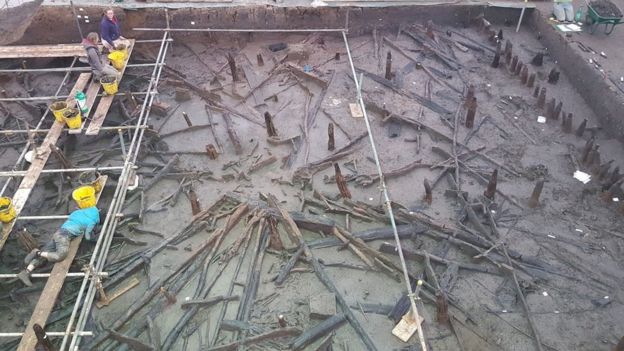 Image copyright Cambridge archaeological unit
Image copyright Cambridge archaeological unit 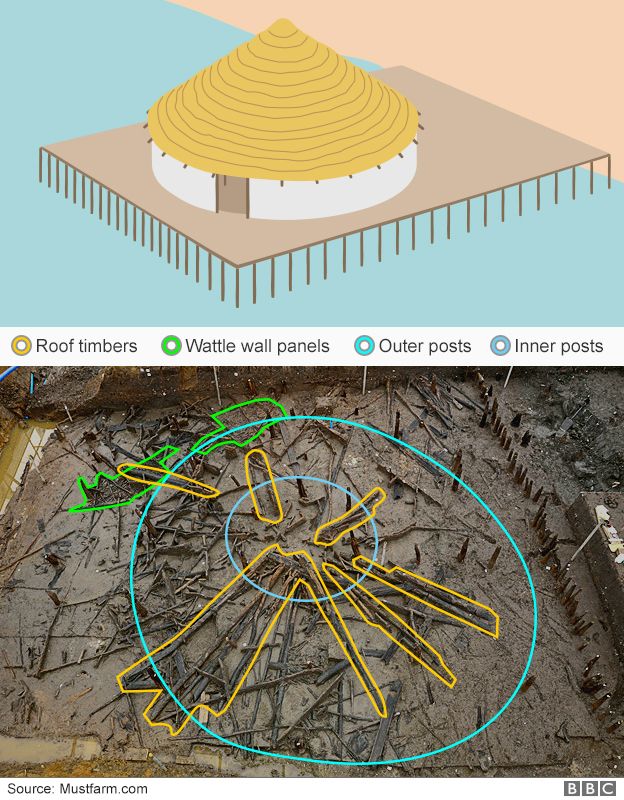
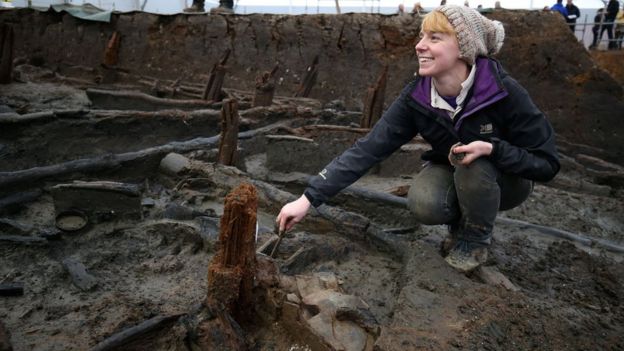 Image copyright PA
Image copyright PA In addition, archaeologists said "exotic" glass beads that formed part of a necklace "hinted at a sophistication not usually associated with the Bronze Age".
Textiles made from plant fibres such as lime tree bark have also been unearthed.
What did Bronze Age Britons eat and other things the site tells us
However, the roundhouses themselves are now being excavated.
Archaeologists think they have found about five houses but are not yet certain.

Bronze Age Europe and Britain
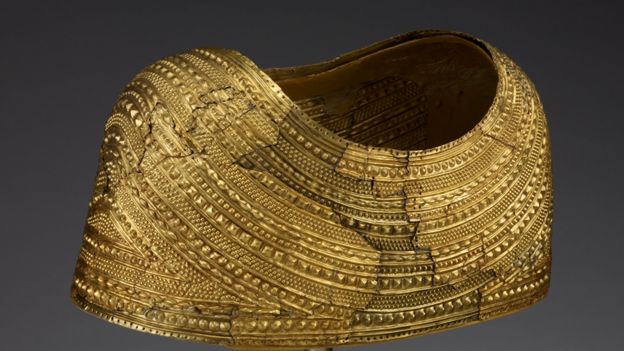 Image copyright British Museum Trustees
Image copyright British Museum Trustees - The Bronze Age in Britain lasted from between 2500 and 2000BC until the use of iron became common, between 800-650BC
- It came after metalworkers discovered that adding tin to copper produced bronze, used for tools and weaponry which were much more hard-wearing
- The Greek poems of Homer - though composed later - look back to a time when bronze weapons were used
- In Britain, the Bronze Age lasted until about 800BC. Use of bronze seems to have coincided with fresh migration of people from the continent.
- Classic Bronze Age remains include sophisticated axes, precious gold objects, and round burial mounds or "barrows" of which many can still be seen in Britain
BBC Bitesize - What was Bronze Age life like?

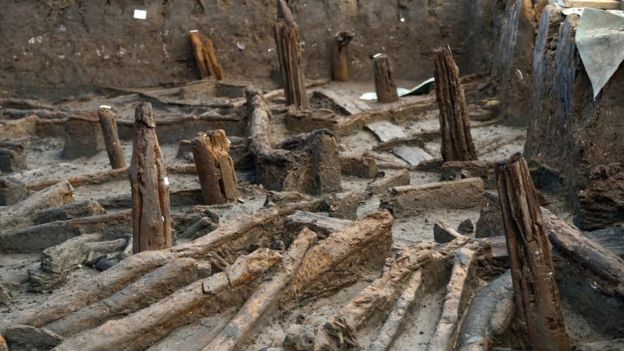 Image copyright Cambridge Archaeological Unit
Image copyright Cambridge Archaeological Unit 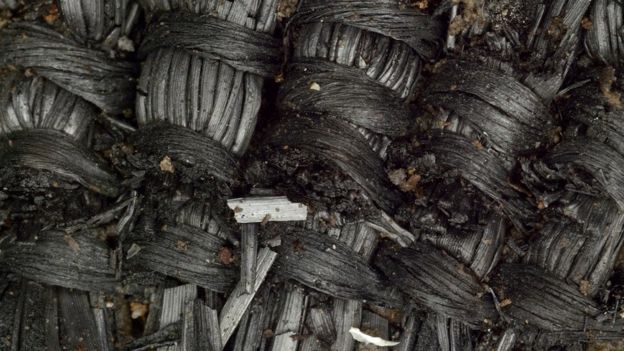 Image copyright Cambridge Archaeological Unit
Image copyright Cambridge Archaeological Unit 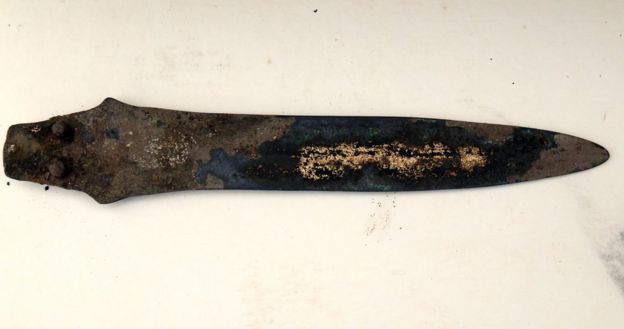 Image copyright PA
Image copyright PA He added: "A dramatic fire 3,000 years ago, combined with subsequent waterlogged preservation, has left to us a frozen moment in time, which gives us a graphic picture of life in the Bronze Age.
"This site is of international significance and its excavation really will transform our understanding of the period."
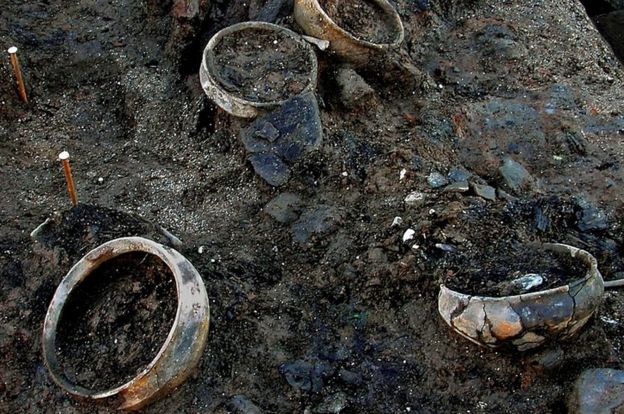 Image copyright Cambridge Archaeological Unit
Image copyright Cambridge Archaeological Unit  Image copyright Twitter
Image copyright Twitter 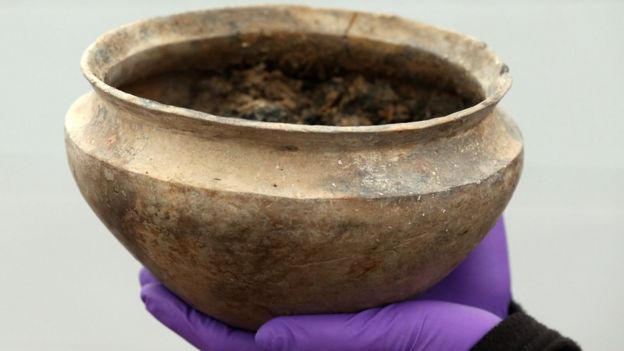 Image copyright PA
Image copyright PA 'Unsurpassed finds'
David Gibson, from Cambridge Archaeological Unit, which is leading the excavation, said: "So much has been preserved, we can actually see everyday life during the Bronze Age in the round."It's prehistoric archaeology in 3D, with an unsurpassed finds assemblage both in terms of range and quantity."
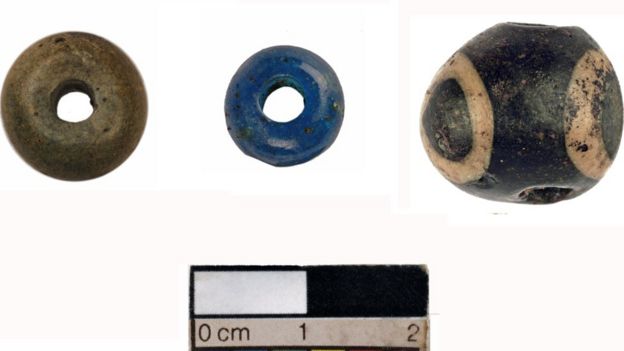 Image copyright Cambridge Archaeological Unit
Image copyright Cambridge Archaeological Unit While a number of Bronze Age settlements have been found in the UK, Mr Gibson said none had been as well-preserved as the Must Farm site.
"Most don't have any timber remaining, just post-holes and marks where posts would have been," he said.
"So far this is unique as we have the roof structure as well."
He said there were some well-preserved similar dwellings at Loch Tay in Perthshire, but these were about 500 years later than those in Cambridgeshire, dating from the early Iron Age.
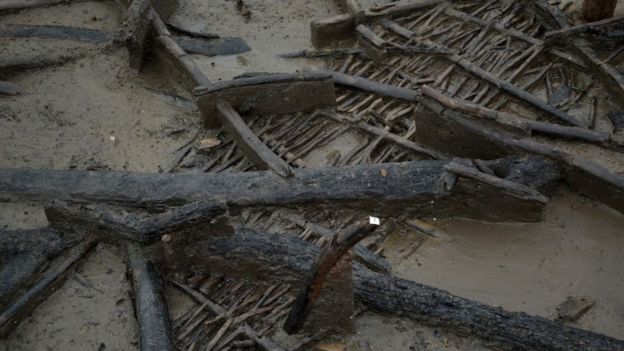 Image copyright Cambridge Archaeological Unit
Image copyright Cambridge Archaeological Unit Once all the retrieved items have been cleaned and documented they are expected to be put on public display.